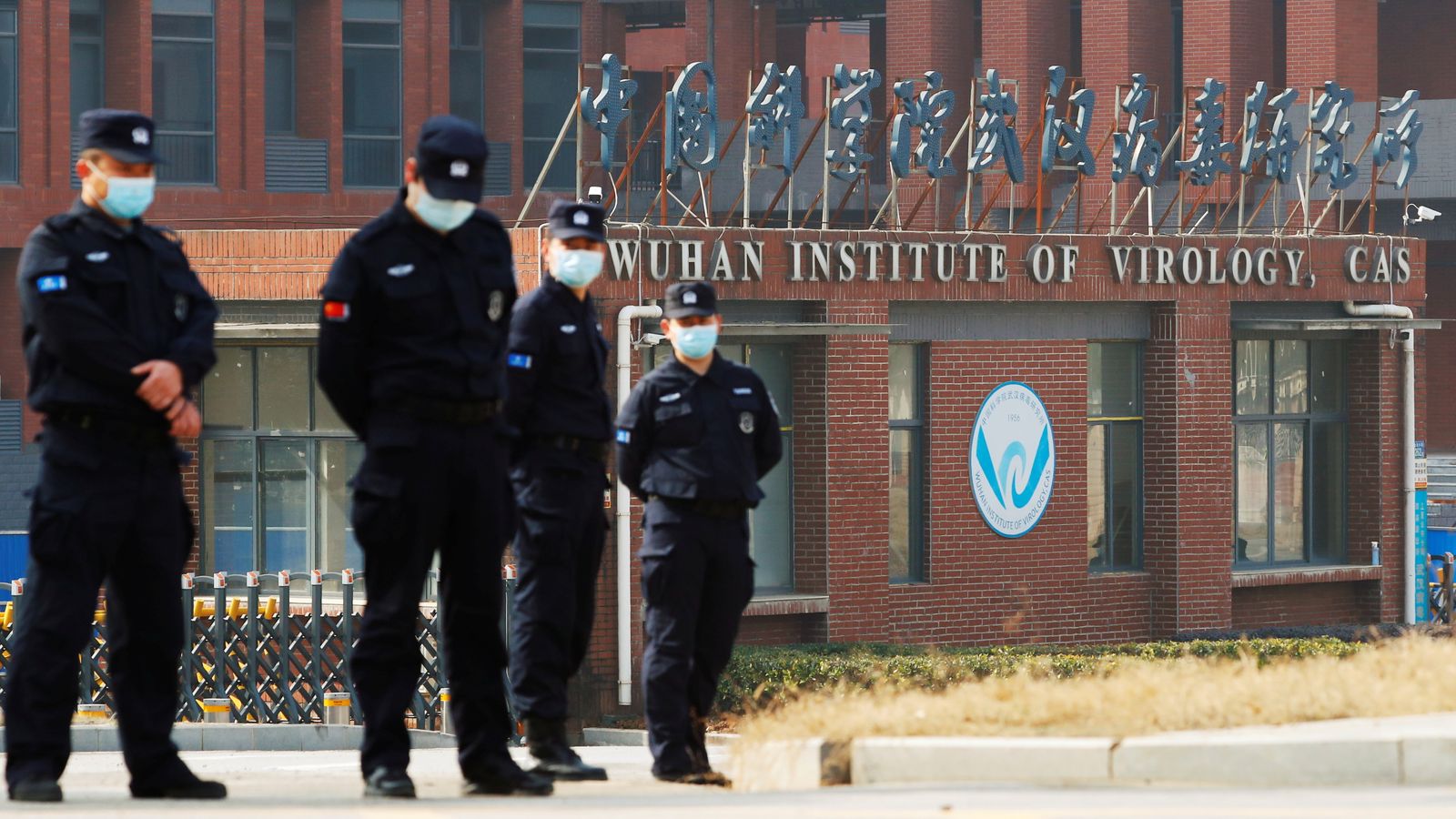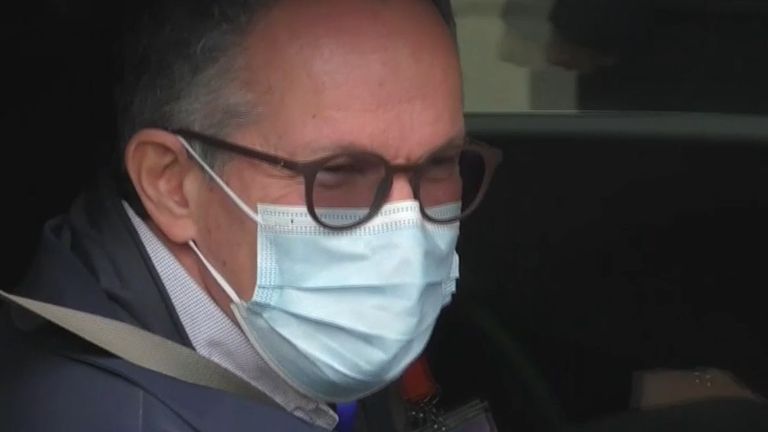There was no accidental leakage of disease from a Chinese laboratory with a history of studying coronaviruses, an international team investigating the origins of COVID-19 has been told.
The Wuhan Institute of Virology (WIV) was on Wednesday visited by World Health Organisation (WHO) experts who are looking for clues as to how the COVID-19 pandemic began.
The laboratory has faced claims it may have caused the original outbreak by leaking the virus into the surrounding community.
Live COVID updates from the UK and around the world
The coronavirus causing the COVID-19 disease was first discovered in Wuhan, with the city becoming the early epicentre of China’s outbreak last year.
It has been suggested the city’s “wet market”, selling seafood and wild animal meat, could also have been the origin of the pandemic.
China has strongly denied allegations about the Wuhan lab and has since pointed to the possibility of COVID-19 being imported to the country from abroad.
In a statement to NBC News following Wednesday’s visit by the WHO team, the Wuhan Institute for Virology said it would continue to “work together to help safeguard global public health security”.
“During the exchange, Shi Zhengli, a researcher from the WIV, introduced the progress in the field of coronavirus research over the years, and said that novel coronavirus’ origin tracing requires the cooperation of scientists from all over the world, making judgements based on scientific data and facts,” the statement said.
“She said that scientists from all countries should conduct extensive wildlife monitoring globally to jointly safeguard human health in the future.
“Yuan Zhiming, director of the Wuhan National Bio-Safety Laboratory, stated that the laboratory strictly complies with the requirements of international and national bio-safety laboratory management to carry out scientific research activities.
“It has carried out safe and stable operations for many years, and there has been no accident of pathogen leakage and personnel infection.
“Wang Yanyi, director of the WIV, said that the institute will further strengthen cooperation and exchanges with the WHO in the future, continue to improve capacity, and join the WHO reference laboratory network as soon as possible, and work together to help safeguard global public health security.”
On Thursday, one member of the WHO team called for patience in waiting for answers over the origins of the COVID pandemic.
“I keep saying that we need to be realistic, a short mission like this one will not have all the answers but it helps advance the understanding of the #virusorigin #wuhan,” Dr Hung Nguyen-Viet posted on Twitter.
Subscribe to the Daily podcast on Apple Podcasts, Google Podcasts, Spotify, Spreaker
Another WHO team member, Peter Daszak, said Wednesday’s lab visit had included an “extremely important meeting” with WIV staff, including Dr Zhengli.
“Frank, open discussion. Key questions asked & answered,” he tweeted.
It is commonly believed by scientists that the novel coronavirus passed to humans from an animal species, most likely a bat.
China recently accused Prime Minister Boris Johnson of engaging in “groundless conjecture” after he suggested that coronavirus could have spread from people grinding up the scales of pangolins.


